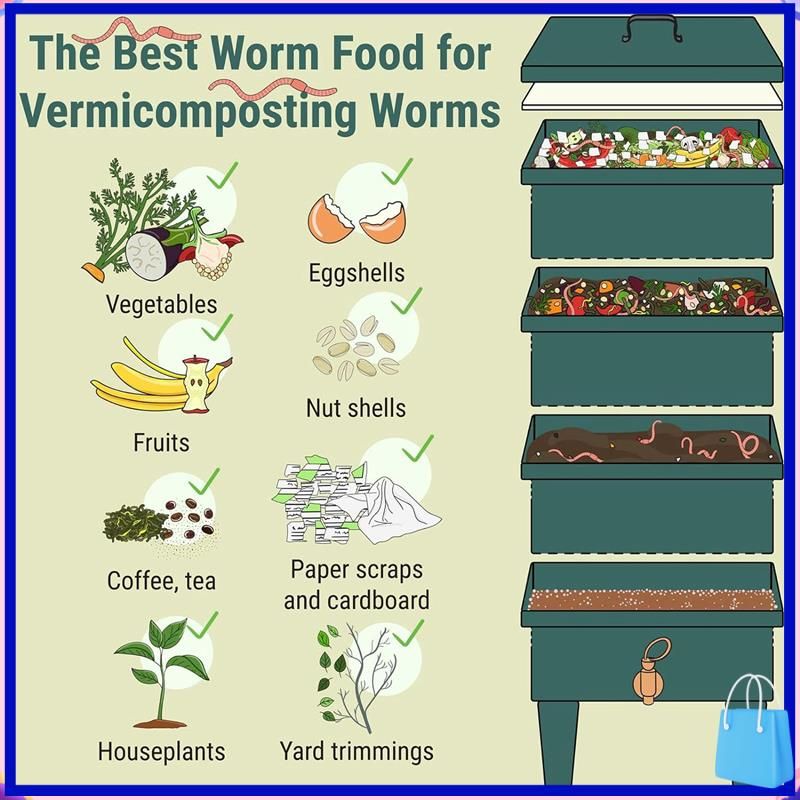“From banana peels to coffee grounds, everyday kitchen and garden waste fuels nature’s tiny composting heroes.”
🌱 What the Chart Shows
The image highlights the best worm-friendly foods for a healthy vermicomposting system. Worms thrive on organic waste, breaking it down into nutrient-rich compost known as vermicast, often called “black gold” by gardeners.
Here’s the worm menu:
- Vegetables – Peels, scraps, and leftovers. Avoid oily or spicy foods.
- Fruits – Banana peels, apple cores, and other sweet scraps (in moderation to avoid fruit flies).
- Coffee and Tea – Grounds, filters, and tea bags keep worms energized.
- Eggshells – Crushed finely, they add calcium and balance pH.
- Nut Shells – Slow to break down but great for texture.
- Paper Scraps & Cardboard – Shredded plain paper adds carbon, balancing the nitrogen-rich food waste.
- Houseplants – Old leaves and dead indoor plants.
- Yard Trimmings – Leaves, clippings, and small branches (chopped).
🪱 Why It Matters
✅ Reduces Household Waste – Up to 40% of kitchen scraps can be composted instead of going to landfills.
✅ Creates Free Fertilizer – Vermicompost improves soil structure, water retention, and plant growth.
✅ Eco-Friendly – Cuts down methane emissions from decomposing organic matter in trash dumps.
✅ Educational – A fun, hands-on way for families to learn about sustainability.
🏡 How It Works
- Place worms in a multi-layered bin with bedding (shredded paper, cardboard, coconut coir).
- Add food scraps regularly, covering them to avoid pests.
- Worms eat the waste, turning it into castings.
- Finished compost collects in the bottom tray and can be harvested.
- Liquid “worm tea” drains out and can be diluted for plants as a natural fertilizer.
🌍 A Growing Movement
Urban gardeners, eco-conscious families, and schools are increasingly turning to vermicomposting bins. Not only do they shrink the garbage bag, but they also provide a continuous supply of natural fertilizer for gardens, balconies, and houseplants.
👉 In short: What looks like kitchen scraps to us is a five-star feast for worms, and in return, they give us some of the richest soil on Earth.
